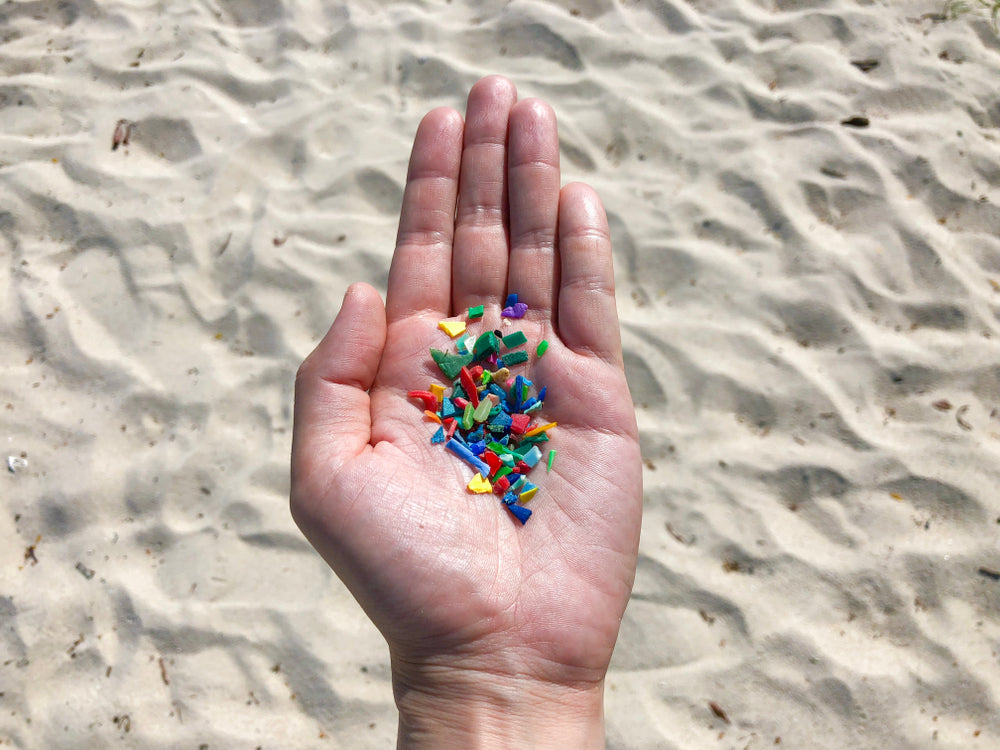Sustainable Cannabis Packaging: Say No to Biodegradable Petroleum-Based Plastic
We are thrilled that sustainable packaging materials are gaining wider adoption by cann...

We are thrilled that sustainable packaging materials are gaining wider adoption by cannabis brands and are finally part of the mainstream conversation about the future of the cannabis industry.
From a materials perspective alone, numerous innovative and exciting sustainable packaging solutions are emerging on the market, utilizing materials that are plant-based, reclaimed, recycled, and even mycelium-based.
And while the growing adoption of sustainable cannabis packaging is an overwhelmingly positive development, we also want to acknowledge that, unfortunately, not everything is always as it seems, especially when considering the broader environmental impact.
For instance, many packaging companies purporting to make sustainable cannabis packaging are simply using petroleum-based resins with biodegradable additives. These packaging products are often marketed as "biodegradable" or more specifically, "biodegradable in landfills."
At best, this trend is a misguided and uninformed attempt at sustainability. At worst, this trend is a deliberate effort to greenwash and mislead both cannabis brands and end consumers.
A 2006 study by the American Chemistry Council found that when consumers see the word "biodegradable" on a package, 80% believe the package will completely decompose regardless of the environment in which the package is disposed.
This is simply not accurate.
We believe the growing trend of using petroleum-based resins with biodegradable additives is counterproductive and detracts from the real conversations about sustainability in the cannabis industry.
Biodegradable and Compostable Explained
Before we dive into the specifics of why we chose not to follow or endorse this trend, let's take a moment to define some of the terms we will be discussing. Specifically, what do "biodegradable" and "compostable" mean in the context of single-use packaging?
As defined by the Sustainable Packaging Coalition, biodegradable refers to a material's ability to "break down, safely and relatively quickly, by biological means, into the raw materials of nature."
Meanwhile, compostable refers to a material's ability to biodegrade "in a composting environment in a relatively short time, capable of producing usable compost."
When it comes to plastics specifically, the Ellen MacArthur Foundation states that "biodegradable" is not a meaningful term because "it does not give any information about the length of time taken for the process to complete, or the conditions that are required."
One of our favorite examples to explain this notion to our customers is that of a car in a junkyard. A car in a junkyard is technically biodegradable, it just takes hundreds if not thousands of years for the car to fully degrade.
Why Biodegradable Petroleum-Based Plastics Are Harmful
The trend of using petroleum-based resins with biodegradable additives to make "biodegradable" cannabis packaging sounds like a great idea in theory. However, this idea is much more nuanced than it appears on the surface.
We have always cautioned customers and colleagues to beware of petroleum-based plastics marketed as "oxo-degradable" or "biodegradable in landfills."
These are traditional petroleum-based plastics treated with "biodegradability" additives.
These additives break traditional plastics down into microplastics, which are more likely to be consumed by both wildlife and humans and are much harder to remove from our natural environment.
A recent study by the Sustainable Packaging Coalition, aptly titled The SPC Position Against Biodegradability Additives for Petroleum-Based Plastics, found that using biodegradable additives with conventional petroleum-based plastics causes harm to the environment that far outweighs any of the purported sustainability benefits of the "biodegradable" material.
For instance, many of the additives designed to enable biodegradation in terrestrial conditions are not designed to be effective in marine conditions.
Marine conditions often face wider variability in temperature, exposure to sunlight, and microbial and nutrient availability than terrestrial conditions. As a result, fragmentations of petroleum-based plastics that have been treated with biodegradability additives actually exacerbate their harmfulness as pollutants in marine environments.
Furthermore, landfills are designed to be anaerobic environments and biodegradable products are designed to break down in aerobic conditions.
By creating packaging made from petroleum-based resins with biodegradability additives, we are actually creating products that go against what we want to end up in landfills.
As noted by the Sustainable Packaging Coalition, "biodegradable" petroleum-based products are not bio-based and biodegradability additives do not change the chemical composition or characteristics of the material.
As a result, the biodegradation of non-bio-based materials in an anaerobic environment, such as a landfill, releases a significantly higher amount of harmful greenhouse gases (like methane) into the atmosphere.
Based on these findings, the Sustainable Packaging Coalition - like us at Sana Packaging - is against pursuing biodegradable additives for petroleum-based plastics as a solution to the waste and environmental damage caused by single-use packaging.
The Future of Cannabis Packaging
We believe a far more effective tactic to address the problem of single-use packaging waste in the cannabis industry is to collaborate with our waste management systems to improve their infrastructure and drive large-scale systemic change. Adopting circular packaging models can significantly reduce waste and promote sustainability.
Our mission has always been to design and develop eco friendly packaging products that work for the environment, rather than against it.
This is why we use plant-based, reclaimed, and recycled materials, which are sustainable alternatives to traditional plastic packaging, rather than virgin petroleum-based materials or those with biodegradable additives.
The cannabis industry is at a pivotal point in its development and how the cannabis industry chooses to address the waste caused by single-use packaging will determine whether or not we will ever have a truly sustainable cannabis industry.
And because cannabis is a new and emerging industry that is still developing its best practices, there is an incredibly unique opportunity to implement circular packaging solutions from the ground up - solutions that are meant to (1) eliminate waste and pollution, (2) keep products and materials in use, and (3) regenerate our natural systems.
